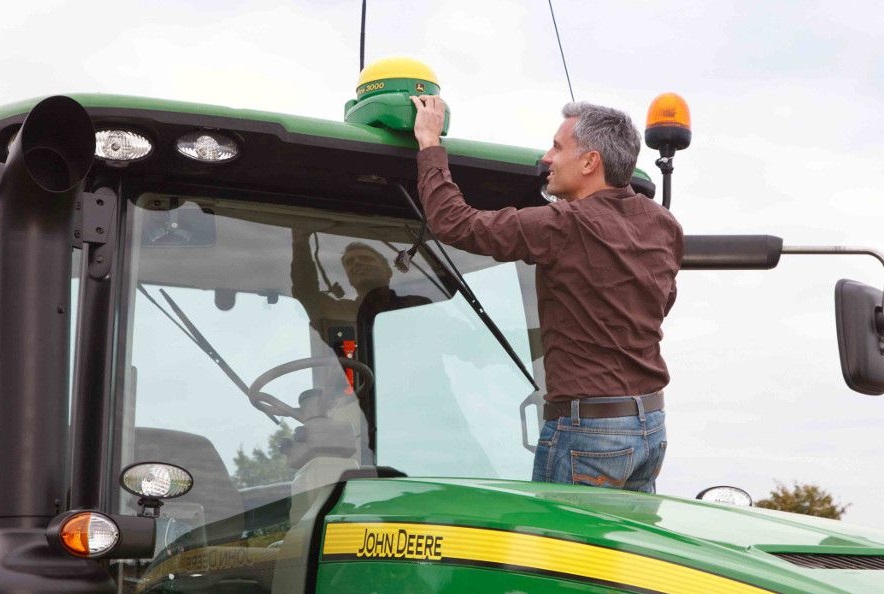Rural crime could 'escalate significantly' as Covid rules relax

The cost of rural crime fell by 20% last year as Covid restrictions kept criminals out of the countryside, but thefts could 'escalate significantly' as the pandemic's economic impact bites.
In its Rural Crime Report, published today (3 August), NFU Mutual has revealed that rural theft cost the UK an estimated £43.3m in 2020, a fall of 20.3% on the previous year.
This made last year the lowest annual cost recorded in five years, as lockdown may have locked some criminals out of the countryside.
But highly-organised criminals continued to plague farmyards in 2020, stealing high-value farming GPS, quad bikes and ATVs as the cost of agri vehicle theft reported to NFU Mutual remained at over £9m.
And other rural crimes, including dog attacks on livestock and fly-tipping, rose sharply. The value of sheep and cattle attacked by dogs shot up by 10.2% to £1.3m in a year which saw a surge in rural visits.
The situation continues to worsen as the rural insurer's claims data shows the cost of attacks rose 50% in the first quarter of 2021 compared to the same period last year.
Thieves got more ‘bang for their buck’ as they turned their focus onto smaller, high-value targets over the pandemic including agricultural GPS systems.
Gangs dubbed ‘Rural Wraiths’ are now using silent electric scooters to steal farmers’ £10,000 GPS equipment and make off along country lanes at high speed, NFU Mutual's report states.
Without GPS – an essential part of modern farming – harvests can be delayed, and some farmers left unable to work.
The cost of claims for GPS almost double last year to £2.9 million as demand across the globe fuelled the crime wave.
Livestock theft fell sharply in 2020 - down 25% - to a cost of £2.3m as emptier roads made it harder for thieves to make off with vehicles full of stolen animals, but the cost in the South West rose by over a third.
Fly-tipping in fields and country lanes reached epidemic proportions as waste recycling centres restricted access, leaving farmers to deal with the clean-up and risks to their health, livestock and the environment.
Rebecca Davidson, rural affairs specialist at NFU Mutual, said Covid restrictions, beefed-up security on farms and more effective police rural crime teams provided a welcome fall in rural thefts last year.
But she warned farming businesses that thieves were now returning armed with new tactics and targets.
"As the economic impact of the pandemic bites, we are very concerned that rural theft may escalate significantly," she added.
“Criminal gangs continued to target farmyards for high-value GPS systems, quad bikes and tractors with the cost of agri vehicle theft remaining at over £9million - only a 2% drop in cost from 2019.
“There’s no doubt that when we work together with police, farmers, communities and other rural organisations to tackle rural crime it can make a real difference."
Ms Davidson also urged the public, many of whom are using the countryside more, to support farmers and rural communities by reporting suspicious sightings to the police.
"Our farmers have worked tirelessly throughout the pandemic keeping the nation fed and caring for the countryside.
"By working together, we can help stem the tide when the criminals become more active again.”
Over the past two years, NFU Mutual has invested over £850,000 in the fight against rural crime including a police UK-wide agricultural vehicle crime tracking and recovery unit.
The National Vehicle Crime Intelligence Service (NaVCIS) co-ordinates farm machinery theft intelligence between NFU Mutual, police forces, Border Force and Interpol.
DC Chris Piggott, agriculture intelligence officer at NaVCIS, said rural thieves were becoming more sophisticated to get round high levels of security on modern farm machinery.
“The pattern we are increasingly seeing is of gangs who patiently watch farms from a distance to discover where expensive tractor GPS kit is stored.
"They generally return at night to steal, and are now using silent electric scooters to get into farmyards undetected and make off at high speed."
He added: “Thieves are also becoming even slicker stealing quad bikes - watching for hours to rush into farm yards and steal them when they are left unattended for a few minutes.”
According to NFU Mutual's report, the biggest fall in the cost of rural theft was in Wales (-39% to £1.6m) followed by Northern Ireland (-37% to £2.1m) and Scotland (-25% to £1.7m).
In England, which records much higher levels of rural theft, costs also fell significantly (-18% to £37.9 million).
The largest regional fall was in the Midlands (-25% to £7.9m) followed by the South West (-24% to £5.1m); and the East (-21% to £6.4m).
In the South East, the cost was down 19% to £7.1m with the North East also seeing its rural theft bill drop 10% to £7.8m. Only one region, the North West, recorded a cost rise (+3% to £3.7m).








